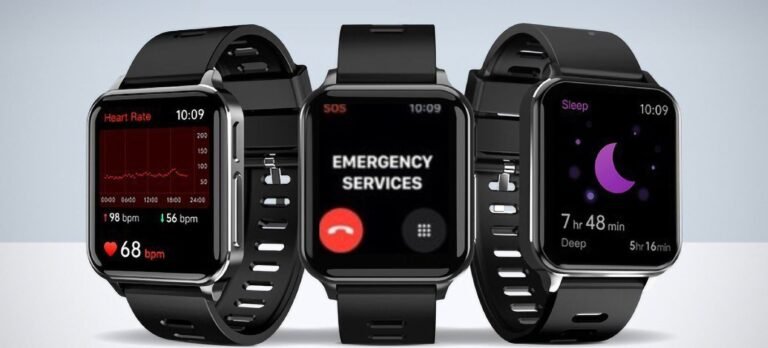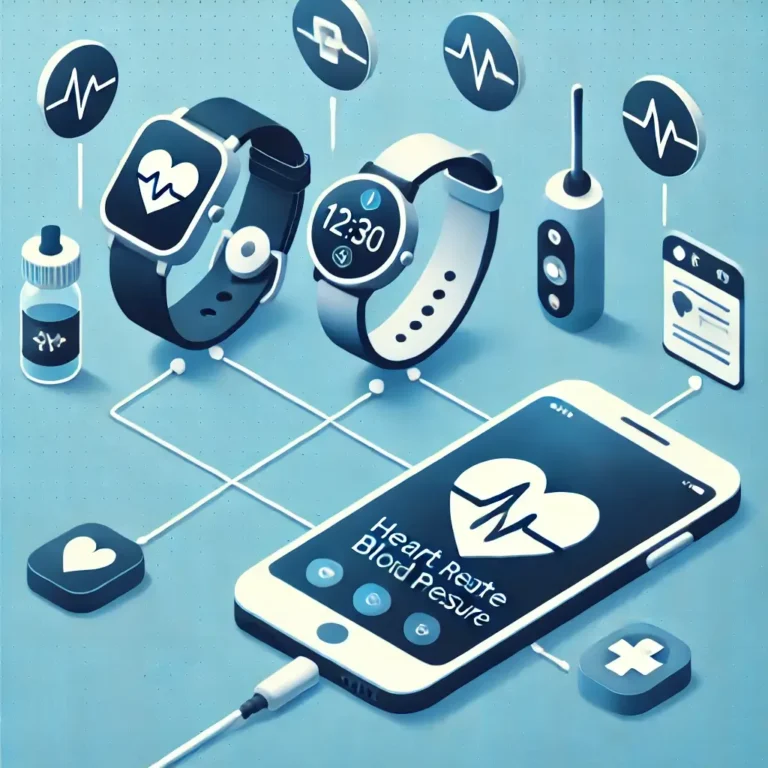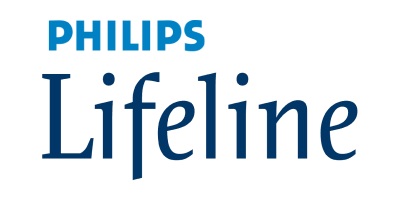Choosing the right medical alert system ensures safety, independence, and peace of mind. With numerous options, comparing brands’ features, reliability, and overall value becomes essential. This page offers a detailed comparison between two prominent names in the industry: Apple Watch and LifeFone. By evaluating their features, history, and device types, we aim to help you make an informed decision.
Apple Watch Series 9
The Apple Watch Series 9 continues Apple’s tradition of innovative technology and health-oriented features. As a leading name in the smartwatch market, Apple has designed the Series 9 to be not just an extension of your smartphone but a comprehensive health and fitness companion. It integrates seamlessly with the iOS ecosystem, offering a wide array of features that cater to both daily convenience and emergency situations.
- Advanced Health Monitoring
- Superior Fall Detection
- Emergency SOS
- Fitness Tracking
- Always-On Retina Display
- Water Resistance
The Apple Watch Series 9 stands out as the best medical alert watch of 2024 for several compelling reasons. Its advanced health monitoring capabilities, including the lifesaving potential of its fall detection and Emergency SOS features, set it apart in a market flooded with options. The integration of these features into a device that also excels in daily connectivity, fitness tracking, and personalization offers users a level of versatility and reliability unmatched by competitors. While the price point and battery life may be considerations for some, the overall value and peace of mind provided by the Apple Watch Series 9 make it an unrivaled choice for anyone looking to combine the functionalities of a smartwatch with the critical features of a medical alert system.
LifeFone
LifeFone is a favorite for its focus on simplicity and ease of use, ideal for tech-wary seniors.
- Nationwide coverage
- 24/7 US-based monitoring center
- Personalized response plans
- Waterproof devices
- No long-term contracts
- GPS tracking for real-time location
LifeFone is selected for its personalized approach to emergency response services, offering customizable care plans that address the unique needs of each user. The brand’s versatile range of devices, including at-home and mobile units with GPS, ensures comprehensive coverage. LifeFone’s commitment to no equipment fees, flexible contracts, and exceptional customer support underscores its value as a trusted provider in our top best medical alerts rating.
General Information
Apple Watch
Apple, a global leader in technology, introduced the Apple Watch to revolutionize the smartwatch market. Since its debut in 2015, the Apple Watch has evolved significantly, incorporating advanced health and safety features. The latest, the Apple Watch Series 9, boasts heart rate monitoring, fall detection, and emergency SOS, making it a popular choice for tech enthusiasts and those seeking reliable medical alert functions.
LifeFone
LifeFone, established in 1976, specializes in providing personal emergency response systems. With over four decades of experience, LifeFone is dedicated to offering dependable and affordable medical alert solutions. Known for its excellent customer service and variety of devices, LifeFone caters to the needs of seniors, individuals with medical conditions, and anyone requiring immediate assistance in emergencies.
Both brands offer unique advantages tailored to different needs. Apple Watch Series 9 stands out with its multifunctionality, serving as a smartwatch and a medical alert system. It is ideal for those who want a combination of fitness tracking, communication, and emergency features. LifeFone, on the other hand, provides specialized medical alert devices focusing on reliability and dedicated emergency response, making it an excellent choice for seniors and individuals with specific medical needs.
Comparing Features
Apple Watch Series 9:
- Multifunctionality: Combines health monitoring, fitness tracking, communication, and emergency services.
- Advanced Health Features: Includes ECG, blood oxygen monitoring, and heart rate alerts.
- Connectivity: Offers seamless connectivity with cellular, GPS, and Wi-Fi.
LifeFone:
- Dedicated Emergency Response: Provides 24/7 access to a professional emergency response center.
- Variety of Devices: Offers both in-home and mobile solutions tailored to different needs.
- Specialized Features: Includes automatic fall detection and caregiver alerts.
Apple Watch and LifeFone have unique strengths that cater to different preferences and requirements. Whether you prioritize multifunctional innovative technology or a dedicated, reliable emergency response system, this comparison helps you understand which brand aligns best with your lifestyle and safety needs. Stay tuned for more detailed sections on user experiences, pricing comparisons, and additional features.
Types of Devices
Apple Watch Series 9 is primarily an on-the-go system, offering comprehensive health monitoring and emergency features wherever you are. It excels in environments where mobility and versatility are crucial, such as during outdoor activities or travel.
LifeFone offers a variety of devices catering to both in-home and mobile needs. Their in-home systems provide reliable protection within the house, while their mobile systems ensure safety on the go. LifeFone’s specialized devices, such as fall detection pendants, add an extra layer of security for those prone to falls.
Technical Characteristics
When comparing the technical characteristics of the Apple Watch Series 9 and LifeFone systems, it is essential to understand how these features can impact user experience and convenience.
- Battery Life: The Apple Watch Series 9 offers up to 18 hours of battery life, meaning users must charge it daily. This can be a hassle for those who prefer less frequent charging. In contrast, LifeFone devices can last up to 30 days on a single charge, providing extended use without regular recharging. This is particularly beneficial for users who forget to charge their devices regularly.
- Connectivity: The Apple Watch Series 9 excels in connectivity with its cellular, GPS, and Wi-Fi capabilities. This ensures users remain connected and can access emergency services anywhere, making it ideal for active individuals. On the other hand, LifeFone systems primarily use cellular or landline connections, which, while reliable, may not offer the same level of versatility and continuous connectivity as the Apple Watch.
- Water Resistance: The Apple Watch Series 9 is water-resistant up to 50 meters, making it suitable for swimming and other water-related activities. This feature is advantageous for users who lead active lifestyles and need a device that can withstand various environments. LifeFone also offers water-resistant options, which are more focused on general durability than extensive water activities.
- Durability and Ease of Use: LifeFone devices are designed with durability and simplicity in mind, catering to users who might find smartwatches complex. Their straightforward operation ensures ease of use, particularly for seniors. In contrast, the Apple Watch, while robust, may require a learning curve for those unfamiliar with intelligent technology. Still, it offers a more comprehensive set of features for tech-savvy users.
Recommended Guides
Monitoring and Response
Effective monitoring and rapid response are critical in emergencies. Here’s how Apple Watch Series 9 and LifeFone compare in these aspects:
- Emergency Response: Both brands offer robust emergency response features. The Apple Watch Series 9 includes an emergency SOS feature that allows users to call for help quickly by pressing and holding the side button. It can also notify emergency contacts automatically. LifeFone, on the other hand, provides 24/7 access to a professional emergency response center. Users can directly connect with trained operators who can dispatch help as needed. This constant monitoring ensures immediate assistance, which is crucial for users who cannot activate emergency services themselves.
- Fall Detection: Fall detection is a crucial feature for both brands. The Apple Watch Series 9 can detect hard falls and automatically alert emergency services if the user is immobile. Similarly, LifeFone offers automatic fall detection on some devices, ensuring that help is available even if the user cannot call for it. Both systems provide peace of mind, but the Apple Watch’s integration with other health monitoring features adds an extra layer of security.
- Health Monitoring: The Apple Watch Series 9 offers comprehensive health monitoring, including continuous heart rate tracking, ECG, and blood oxygen levels. This continuous health data can alert users to potential issues before they become emergencies. LifeFone, while focused on emergency response, does not offer the same level of health monitoring. However, its primary focus on reliable emergency services ensures that users get immediate help.
Additional Features
Additional features can significantly enhance medical alert systems’ functionality and user experience. Here’s how Apple Watch Series 9 and LifeFone stack up:
- Fitness and Health Tracking: The Apple Watch Series 9 doubles as a fitness tracker, offering insights into activity levels, workouts, and overall fitness goals. It also includes mindfulness apps and sleep tracking, promoting better mental and physical health. LifeFone does not provide fitness tracking features; instead, it focuses on emergency response and monitoring.
- Caregiver Tools: LifeFone excels in providing caregiver tools, such as alerts and notifications, which allow caregivers to monitor the user’s status and receive updates. This feature is handy for family members or professional caregivers who must stay informed about the user’s condition. The Apple Watch offers some caregiver features through shared health data, but it is less specialized in this area than LifeFone.
- Medication Reminders and Environmental Monitoring: Some LifeFone devices include medication reminder features, helping users manage their medication schedules effectively. Additionally, LifeFone systems can monitor environmental hazards like smoke or carbon monoxide, adding an extra layer of safety. The Apple Watch does not offer these specific features but focuses on overall health and fitness monitoring.
- Smart Notifications and Integration: The Apple Watch Series 9 offers intelligent notifications for calls, messages, and apps, keeping users connected and informed. This integration benefits users who prefer a single device for health monitoring and daily communication. LifeFone’s devices do not offer intelligent notifications; their primary function is emergency response.
Customer Service and Support
Customer service and support ensure user satisfaction and confidence in medical alert systems. Here’s how Apple Watch Series 9 and LifeFone compare:
- Support Accessibility: Apple offers extensive support through its website, Apple Stores, and customer service lines. Users can access many resources, including how-to guides and direct customer service assistance. LifeFone also provides excellent customer service and dedicated support through phone and online channels. Their team offers personalized assistance, which can be particularly beneficial for seniors requiring extra help.
- Warranty and Trial Period: Apple provides a standard warranty and options for extended coverage through AppleCare, ensuring users can get their devices repaired or replaced if issues arise. LifeFone offers a trial period for new users to test the service and a warranty for their devices. This allows users to ensure the system meets their needs without a long-term commitment and guarantees that any faulty devices will be promptly addressed.
- Customer Experience: LifeFone is known for its personalized customer service, ensuring each user’s needs are met. This approach is particularly advantageous for seniors who might need additional support. With its robust customer service infrastructure, Apple ensures that users receive timely and practical support, but it may not offer the same level of personalization as LifeFone.
Latest Blog Posts
Costs and Benefits
Understanding the costs and benefits of each system helps users make informed decisions based on budget and value.
Costs:
- Apple Watch Series 9: The initial cost of the Apple Watch Series 9 ranges from $399 to $749, depending on the model and features. Additionally, users may incur expenses for cellular plans if they choose a model with cellular capabilities. AppleCare, an extended warranty and support service, also involves additional costs. These upfront expenses can be significant, but the device’s multifunctionality offers extensive benefits beyond emergency response.
- LifeFone: LifeFone offers various plans with monthly fees ranging from $29.95 to $49.95. There are often no upfront costs for the equipment, and users can choose between monthly, quarterly, or annual billing. Some plans may have additional fees for optional features like fall detection or GPS tracking. LifeFone’s pricing structure initially makes it more affordable, with predictable monthly expenses.
Benefits:
Apple Watch Series 9 offers a wide range of benefits, including comprehensive health monitoring (heart rate, ECG, blood oxygen), fitness tracking, and smart notifications. The integration with other Apple products and services adds value for users already in the Apple ecosystem. The watch’s multifunctional nature means users get a device that serves multiple purposes beyond emergency alerts.
LifeFone focuses on providing reliable, dedicated emergency response services. Benefits include 24/7 access to a professional monitoring center, caregiver tools, and additional features like medication reminders and environmental monitoring. The simplicity and reliability of LifeFone devices make them particularly beneficial for seniors or those less comfortable with complex technology.
Frequently Asked Questions
Addressing common questions can help users better understand and compare the Apple Watch Series 9 and LifeFone systems.
Can the Apple Watch Series 9 function without an iPhone?
Yes, but with limitations. While the Apple Watch Series 9 can perform many functions independently, specific features, like full health monitoring capabilities and app integrations, require pairing with an iPhone.
Is there a contract with LifeFone Services?
No, LifeFone offers flexible billing options with no long-term contracts. Users can choose monthly, quarterly, or annual plans and can cancel at any time without penalties.
How do the emergency response features compare?
Both systems offer robust emergency response capabilities. The Apple Watch Series 9 uses its emergency SOS feature to call for help and notify contacts, while LifeFone provides direct access to a 24/7 emergency response center. The choice depends on whether users prefer automated innovative technology or direct human interaction.
Which system is better for fitness tracking?
The Apple Watch Series 9 excels in fitness tracking, offering detailed insights into activity levels, workouts, and overall health. LifeFone does not provide fitness tracking, focusing solely on emergency response and health monitoring.
What happens if the device needs repair?
Apple offers repair services through its stores and authorized service providers, with options for extended coverage through AppleCare. LifeFone provides a device warranty and will replace faulty equipment as needed. Their customer service team assists with troubleshooting and repairs.
Final Thoughts
Choosing between the Apple Watch Series 9 and LifeFone depends on individual needs, preferences, and lifestyle.
Apple Watch Series 9: This is best suited for users who want a multifunctional device that combines health monitoring, fitness tracking, and smart technology. It is ideal for tech-savvy individuals and those already integrated into the Apple ecosystem. The upfront cost is higher, but the extensive range of features justifies the investment for users seeking an all-in-one solution.
LifeFone is perfect for users who prioritize straightforward, reliable emergency response services. It caters to seniors and individuals with specific medical needs who might find smartwatches overly complex. The lower initial cost and flexible pricing plans make it an affordable option with robust support and personalized customer service.





















